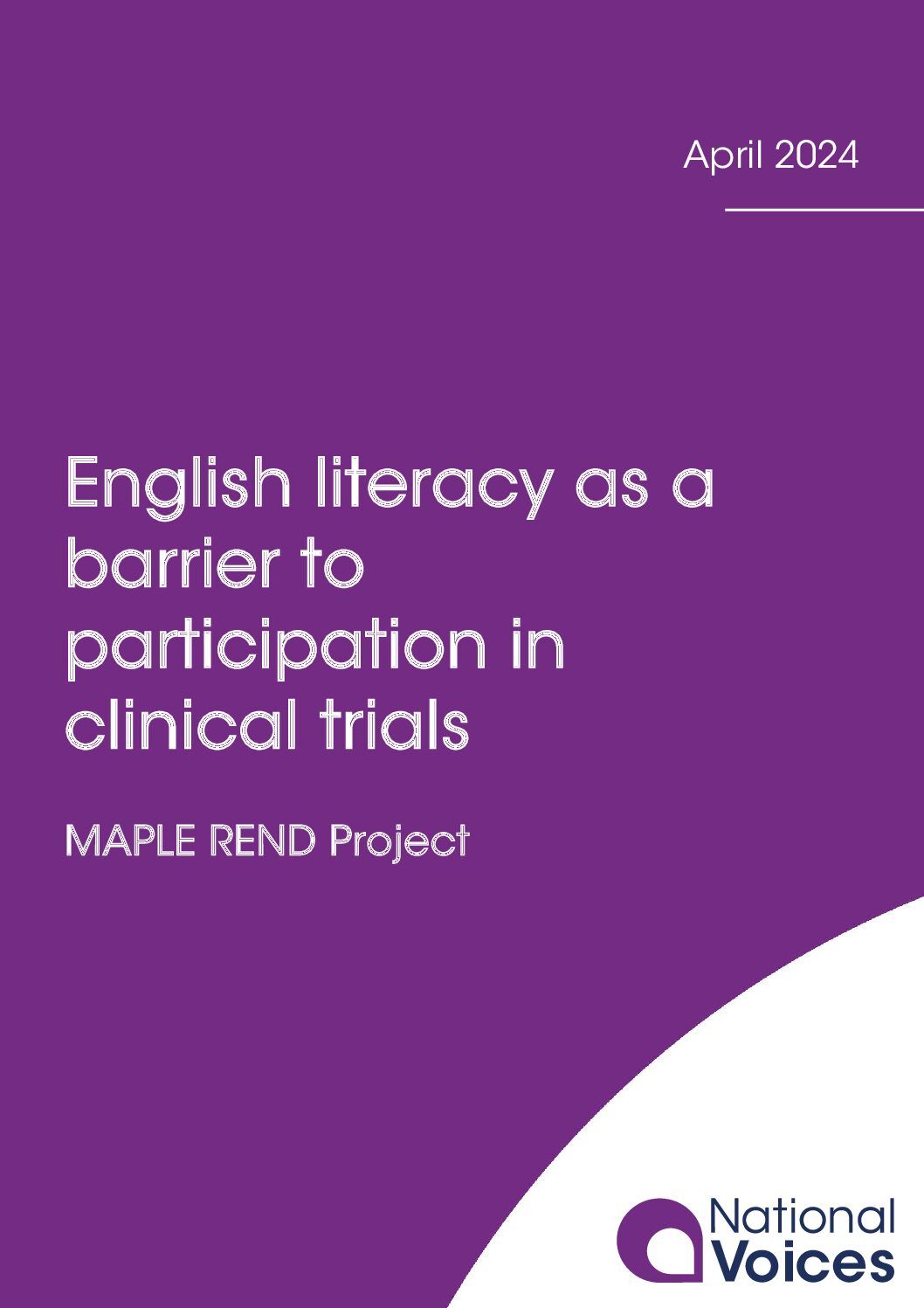
English literacy as a barrier to participation in clinical trials
- Communication and administration
- Health inequalities
- Lived experience
- Person-centred care
The MAPLE Project
The MAPLE project, led by the Bristol Biomedical Research Centre and funded through the ICS Research Engagement Network (REN) development programme, aims to create accessible information for people who may be interested in taking part in research but find traditional patient information leaflets (PILs) too complex to engage with.
By improving PILs the aim is to improve the diversity of people choosing to participate in research, and to improve the representation of marginalised communities in clinical research.
Our work and findings
We were commissioned to work with our member charities and the people they advocate for to identify how PILs should be improved and understand wider barriers to participation in research.
18 people attended an online workshop – these were a mixture of professionals working in health charities and people with lived experience of long-term health conditions and/or disability. A further five individuals were consulted individually in follow-up conversations.
Our report is the result of these discussions, and contains insightful quotes from participants, whilst identifying key themes and learning points that applied specifically to two sample leaflets, shared in advance, as well as wider learnings on PILs more broadly.
Some of our findings and recommendations include:
- We saw positive support for the attempt to make PILs more accessible.
- The ability to take away a written leaflet to consider the opportunity to take part in clinical research is a strong benefit.
- Images make leaflets easier to understand, but they must be visually literate to the information provided.
- Leaflet wording must strike the correct balance between being simple and making people feel patronised.
- Leaflets need to contain more information around consent, side effects, and details around getting in contact.
- People should be signposted to additional information or alternative resources after reading the initial leaflet.
- There must be a clear commitment to providing alternative formats for those with additional communication needs.
- Co-production is incredibly important – and needs to go much further, being extended to the entire research process. This could overcome wider participation barriers that were not within the scope of this project.
If you would like to read this report in an alternative format, please get in touch.
Acknowledgements
We would like to thank National Voices’ Associate Kate Jopling for her significant contributions on this project.
We would also like to thank our member organisations and people with lived experience for sharing their insights and inputting on this work, including The Nerve of My Multiple Sclerosis, Macular Society, TransActual, Thomas Pocklington Trust, Roma Support Group, South Asian Health Action, BHA For Equality, Blood Cancer UK, British Heart Foundation, Age UK, Rethink Mental Illness, National Voices’ Lived Experience Partners and others.
This activity was funded through the ICS Research Engagement Network (REN) development programme. The views expressed in this publication are those of the author (s) and not necessarily those of NHS England or the Department of Health and Social Care.